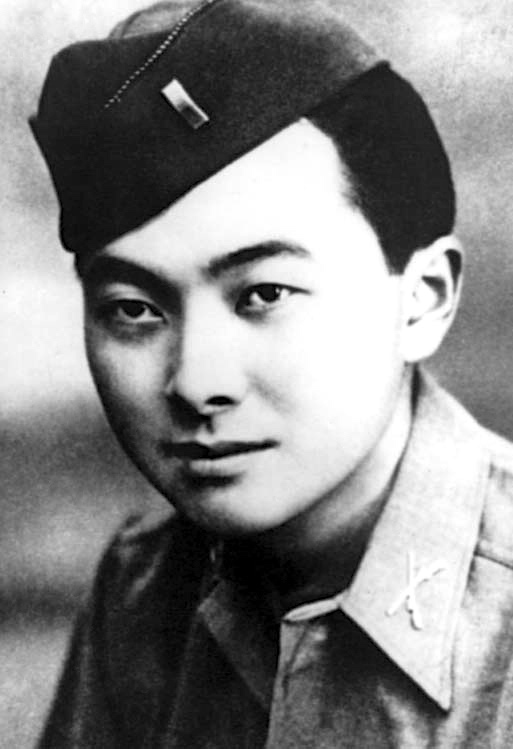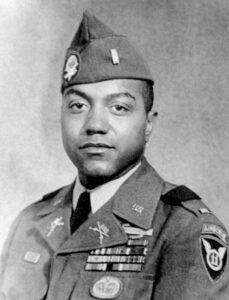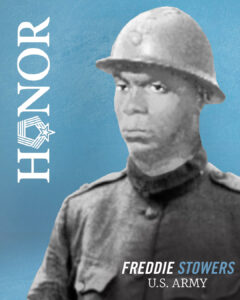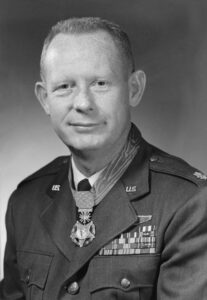Recipient: Daniel Inouye
Branch: U.S. Army
Combat: World War II
Daniel Ken Inouye was born in Honolulu, Hawaii, on September 7, 1924. He was known as a Nisei, a second-generation Japanese American. His mother, Kame Imanaga, was also considered a Nisei, but her immigrant parents passed away and a Caucasian Hawaiian family later adopted her. Daniel’s father, Hyotaro Inouye, was known as an Issei, a first-generation Japanese American.
When asked to define Japanese concepts like “ōn” and “giri,” Inouye said that the best translation came from his father on the day Inouye departed for U.S. military training:
“This country has been good to you. If it means you must give your life for it, so be it, but do so with honor. Whatever you do, do not dishonor the family or the country.”
These were the values that Inouye had grown up with. Helping people in his own community was extremely important. In high school, he was a volunteer first-aid instructor for the Red Cross. After his graduation, he planned to study pre-med in university to become a surgeon. As one could imagine, his senior year was full of classes, home obligations, and the needs of the Red Cross.
But one day changed his life forever: the day Pearl Harbor was attacked.
Citizenship in Question
On December 7, 1941, Inouye was going through his Sunday routine. He finished his chores in the morning, and then turned on the radio as he was combing his hair. Hawaiian music was playing, as was usual for that time of day, but then the announcer suddenly screamed, “Pearl Harbor has been bombed. For real! The Japanese are bombing Pearl Harbor.”
Inouye and his father darted out of the house and looked toward the harbor. Black puffs were billowing in the sky, the remnants of anti-aircraft shells. Then three fighter bombers flew overhead. Inouye felt as though his life “had come to an end.” The gray plane with a red dot carried a pilot who looked just like him.
At that moment, there was no time to wonder what the future held. There were people who needed help right then and there. Inouye, dressed in his work clothes, made his way to the first aid station.
For a week, he tended to civilians wounded from the attack. But in the months that followed, the situation became especially tense for Japanese Americans. Language schools, Buddhist temples, and Shinto temples were closed. The draft board declared Japanese Americans and Japanese as “4-C,” also known as “enemy aliens.” That meant that Inouye was unable to serve in the U.S. military.
But Inouye, along with many other Japanese Americans, petitioned against the designation. He wanted to serve in the Army, and if he couldn’t do that, he wanted to serve his community. Although it was unlikely he would be able to become a surgeon amid such high racial tensions, Inouye still attended the University of Hawaii for pre-medical school as he had previously planned.
In 1943, when he received the news that Japanese Americans could serve in the Army, he enlisted almost immediately. Inouye was soon assigned to the 442nd Regimental Combat Team. The unit was entirely segregated, led by Caucasian officers but mostly made up of Nisei men. The 442nd was a mix of Japanese Americans who had previously been in incarceration camps and others from Hawaii who had not.
Inouye became a sergeant at the age of 19, after a year of training at Camp Shelby in Mississippi. When his unit landed in Italy, preparing for their first battle, he asked his compatriots what was on their minds.
Inouye recalls much later: “Every one of them gave me the same answer, maybe in a different way. ‘I hope I don’t bring shame. I hope I don’t bring shame to my family. I hope I’m not a coward.’”
Citizenship in Action
The 442nd was deployed to the Italian theater of World War II. Inouye was a sniper and fought in the Battle of Belvedere on June 26, 1944. While fighting in France, Inouye was shot in the chest. It was there that the “lucky” silver dollars he carried in his shirt pocket truly earned their name—stopping the bullet before it could damage his heart. Sergeant Inouye became a second lieutenant and a Bronze Star recipient.
There were more awards to come—and more losses. In the last year of the war, Inouye returned to Italy with his men. But his lucky silver dollars were nowhere to be found.
As he approached San Terenzo, he was once again struck by a bullet. Inouye remarked that the pain was “nothing grave,” and he continued to march on, destroying two of three machine gun nests with grenades and submachine guns. Inouye had just pulled out the pin of a grenade and was preparing to throw it when an enemy soldier fired, hitting him and severing most of his right arm.
Despite the damage to his arm, the grenade was still in his grip and seconds away from exploding. Inouye shouted to his men to stay back while he pried away the grenade with his other hand and threw it toward the enemy lines, with only seconds to spare. Now, with only his left hand, he began to shoot his submachine gun, not halting until enemy fire hit his legs. Within the ensuing hour, several of his comrades set up a tourniquet for him, while the other men secured the mission.
Another operation was necessary for Inouye: a full amputation. Because he had been administered so much morphine for the pain of his injury, he could not be given anesthesia for the removal of his arm. Thankfully, though, this procedure went smoothly.
Inouye was honorably discharged as a captain and spent two years rehabilitating, receiving the Distinguished Service Cross and Purple Heart for his service. But after a series of surgeries and 17 transfusions, Inouye noticed something unique. His transfusions all came from those in the 92nd Division—another segregated unit. This time, of Black Americans.
Out of gratitude to the men of the 92nd, Inouye went on to advocate for civil rights. Daniel Inouye became Hawaii’s first representative after its statehood in 1959, and was its senator from 1963 to 2012. He received the Medal of Honor in 2000, and he received the Medal of Freedom in 2013, a year after his death. He is the only senator to have received both prestigious honors for a lifetime of service.




